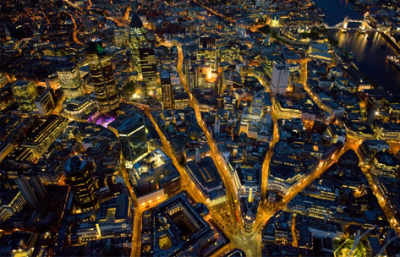
London is a literary hub, home to thousands of writers, editors, agents, publishers, and printing presses. The Department, situated at the pulsing heart of Bloomsbury – just minutes away from the British Library, the British Museum, and the offices of many national newspapers and specialist cultural reviews – is fully alive to the buzz of so much proximate literary activity. The advantages and excitement of such a central location are reflected in both our teaching and our research.
Teaching in the Department’s courses takes advantage of UCL’s exceptional metropolitan position. A year-long undergraduate course is devoted specifically to the study of London in Literature. Ranging widely in time, from medieval London to contemporary theories of psychogeography, the course explores the many imaginative opportunities the city has afforded, evaluating its representation in literature and other arts, and encouraging students to think about the city both historically and theoretically. Taught MA programmes also capitalize in the Department’s position at pulsing heart of London by covering topics such as medieval and Renaissance urban writing, Shakespeare’s London, and the city and modernity.
Much of the Department’s research attends to literary portrayals of city life.
2010 saw the publication of Restless Cities (Verso), a collection of essays edited by Matthew Beaumont and Gregory Dart. Bringing together essays by contemporary writers and scholars, it interweaves analytical and experiential voices in its attempt to explore the everyday life of the modern metropolitan city and to understand its histories. It includes contributions by Marshall Berman, Geoff Dyer, Patrick Keiller, Esther Leslie, Chris Petit, and Iain Sinclair, as well as by the Department’s own Matthew Beaumont and Gregory Dart.
Matthew Beaumont’s Nightwalking: A Nocturnal History of London from Chaucer to Dickens, the research for which was funded by the Leverhulme Trust, was published by Verso in 2015. It explores the night side of London from the Middle Ages to the mid-nineteenth century, reconstructing its peculiar social ecology through the figure of the aimless or homeless nightwalker. He has also, with Matthew Ingleby, edited, G.K.Chesterton, London and Modernity (Bloomsbury, 2013), the first volume to explore the importance of the city in Chesterton’s writing.
Gregory Dart’s Cockney Adventures: Metropolitan Art and Literature 1810-1830 (Cambridge, 2012) is a study of the development of new kinds of metropolitan art and literature in the years 1815-40.
Mark Ford has brought out a capacious anthology of poetry inspired by London entitled London: A History in Verse (Harvard, 2012). He has also written about the influence of London on the work of Thomas Hardy in Thomas Hardy: Half a Londoner (Harvard, 2016).
Many of the department’s publications on the theme of ‘The City’ are available to download and read for free from UCL Discovery.
Ezra Horbury’s ‘Tween Two Currents: The Triumph of Domestic Tragedy in Heywood’s The English Traveller’ (Early Modern Literary Studies, forthcoming).
Gregory Dart’s ‘Blackwood’s and the Cockney School of Prose’ (Romanticism, 2017)
Charlotte Roberts’s ‘Living with the Ancient Romans: Past and Present in Eighteenth-Century Encounters with Herculaneum and Pompeii’ (Huntington Library Quarterly, 2015).
Matthew Beaumont’s ‘In the beginning was the big toe: Bataille, base materialism, bipedalism’ (Textual Practice, 2015).
Matthew Beaumont’s ‘Stumbling in the Dark: Ray Bradbury’s Pedestrian and the Politics of the Night’ (Critical Quarterly, 2015).
The Department has been and continues to be involved in a number of large, collaborative, city-themed projects.
The Leverhulme-funded Bloomsbury Project, which ran from 2007 to 2011 under the direction of Rosemary Ashton, made a study of the nineteenth-century history of UCL’s famous literary neighbourhood. The Project’s numerous findings are available on its website, and Ashton brings the place, its history, and its personalities vividly to life in Victorian Bloomsbury (Yale).
In 2010 Matthew Beaumont set up the City Centre with the aim of coordinating research projects relating to varied aspects of the cultural and literary history of the metropolis from the Middle Ages to the present. Professor Michael Sheringham, Marshall Foch Professor of French Literature at Oxford University, delivered the Centre’s inaugural lecture. Since then it has run a number of seminar series. The Centre’s advisory board includes Geoff Dyer, Esther Leslie, Patrick Keiller, China Miéville, Will Self and David Trotter. In 2014, the Centre became part of UCL’s Urban Laboratory, where it continues to function as an academic hub and as a platform for wider cultural events on aspects of city life.
 Close
Close

